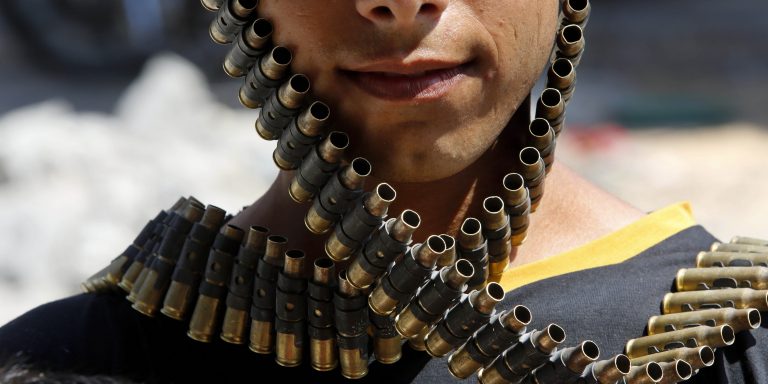INTELBRIEF
June 22, 2018
IntelBrief: Ever More Wars

- On June 19, U.N. Secretary-General António Guterres noted ‘the number of countries with violent conflicts is the highest in the last 30 years.’
- Speaking of a tenfold increase in conflict deaths since 2005, he said ‘the situation is indeed deteriorating in the world.’
- Simply put, the international community is no longer resolving armed conflicts.
- This undeniable and uncomfortable reality points to the need for prevention, ideally, or early mediation.
.
From Afghanistan to Ukraine, Syria to Nigeria, Libya to Yemen, the world is experiencing more persistent conflicts now than at any time in the last 30 years. Some long-running conflicts continue to simmer with occasional flare-ups, like between India and Pakistan in Kashmir—a conflict which began in 1947—while others, including the war in Afghanistan, which began in 1979, are still raging. The Syrian war that started in 2011 continues to be among the worst in modern times, with cascading regional and international impacts including the refugee crisis and a rise in global terrorism. While the Assad regime appears to be ‘winning’ the war, the fighting and destruction in Syria now involves outside actors and is unlikely to stop even if the Assad regime declares victory. Given the abject failure of the international community to resolve these conflicts, today’s wars will certainly be the wars of tomorrow—and beyond.
Speaking at the June 19-20 Oslo Forum in Norway, United Nations Secretary-General António Guterres stated that ‘the number of countries with violent conflicts is the highest in the last 30 years. If we compare with 2007 and consider the number of violent situations that can be qualified as war according to the number of casualties, they have tripled.’ In an honest assessment of the failure to end wars, Secretary-General Guterres claimed that ‘prevention is more necessary than ever, and the more difficult conflict resolution is, the more important prevention becomes.’
The scale of the destruction to both human life and infrastructure is impossible to overstate. Groups such as the so-called Islamic State feed off of that destruction, and the will and ability of the international community to rebuild and reconstruct even a small percentage of what has been lost in a country like Syria is fading — even as the need to rebuild is growing. In countries like the Central African Republic and Sudan, each seeing conflicts that resulted in more than 1,000 causalities in 2017 alone, there is little help from the outside. Yet even when attention and resources are provided by the international community, they often are not enough, as seen in Myanmar and Somalia.
Making the problem far worse both in the immediate and long-term is the fact that the U.S. and others are marginalizing the institutions, however flawed, that are the world’s best options for mediating conflicts. As Secretary-General Guterres noted, early mediation is essential to combat endless conflict, since it is now apparent that once the fighting starts in earnest it is all but impossible to end it diplomatically. The international community needs to invest far more in conflict resolution, with adequate resources and skilled teams that can resolve tensions and seek viable alternatives to war. The investment in these rapid response conflict resolution teams and the embrace of early, intensive meditation are much better approaches to end global conflict, as opposed to increased arms sales and the abandonment of international institutions that aim to build consensus and international norms.
.
For tailored research and analysis, please contact: info@thesoufancenter.org